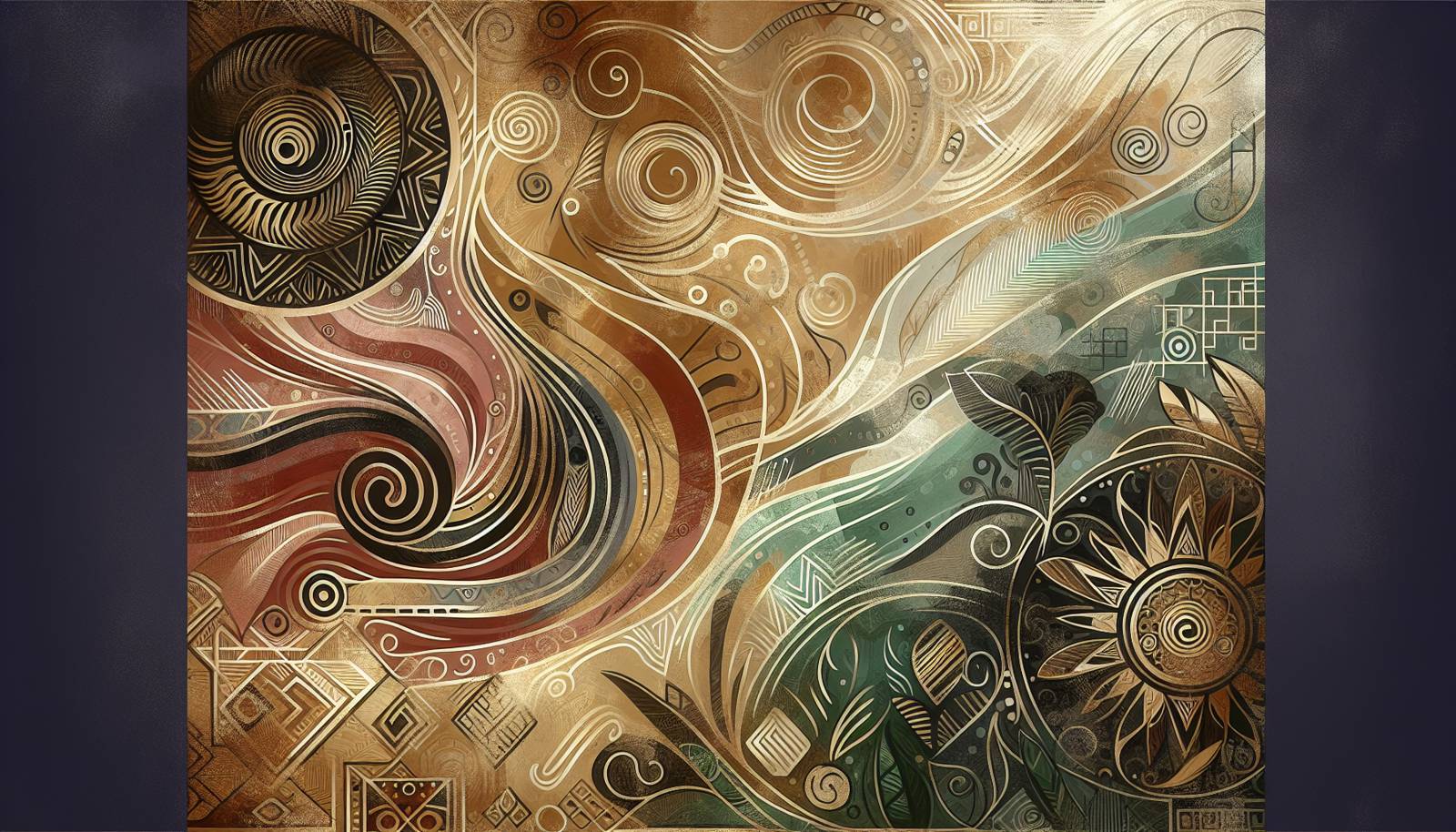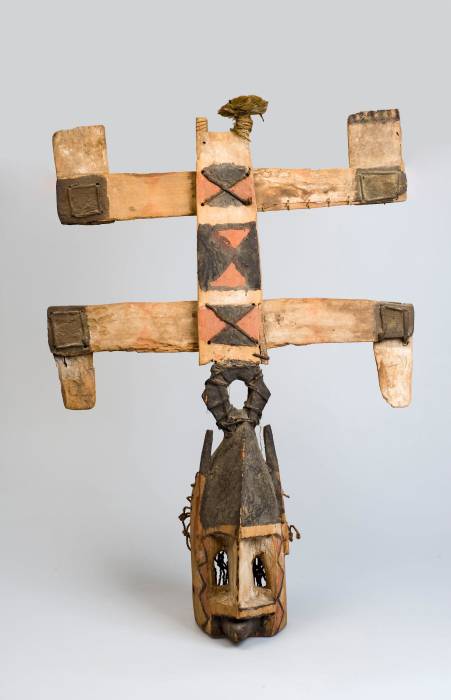
FAQ About The Cultural Impact of African Mythology in Fantasy Films

What is African mythology?
African mythology refers to the various myths, legends, and religious beliefs that originate from the continent of Africa. These narratives often include stories about creation, gods, spirits, and the connection between humans and the divine. Due to Africa's diverse cultures and languages, each region has its own unique set of myths, such as those from the Yoruba, Zulu, Akan, and Dogon people.

How does African mythology influence fantasy films?
African mythology influences fantasy films by providing rich and diverse storytelling elements, characters, and themes. Filmmakers draw from African myths to create original stories, magical realms, and compelling characters that broaden the scope and representation of narratives in global cinema. The use of African mythology allows for the exploration of unique worldviews and cultural perspectives, enriching the fantasy genre.

Can you give an example of a fantasy film influenced by African mythology?
An example of a fantasy film influenced by African mythology is Marvel's Black Panther. The film incorporates elements of African history and mythology, particularly through the fictional country of Wakanda. It draws on African cultural motifs and Afrofuturism to tell a story that celebrates African heritage and introduces audiences to a world grounded in African mythological elements.

What are some common themes in African mythology?
Common themes in African mythology include the creation of the world, the relationship between humans and the divine, the importance of ancestors, the significance of nature, and the balance between good and evil. Many myths also explore human virtues and vices, the importance of community, and the interconnectedness of all life forms.

Why is representation important in fantasy films with African mythology?
Representation is important in fantasy films featuring African mythology because it ensures that diverse cultures and stories are accurately and respectfully portrayed. This inclusion enriches the genre by providing audiences with new perspectives and narratives. Moreover, representation helps combat stereotypes and promotes cultural understanding, allowing viewers from all backgrounds to see themselves reflected in varied, powerful stories.

How do fantasy films challenge stereotypes through African mythology?
Fantasy films challenge stereotypes by using African mythology to present nuanced, complex characters and narratives that go beyond one-dimensional portrayals. These films can highlight the richness of African cultures, break down misconceptions, and offer empowering representations that celebrate African identity and creativity. By doing so, they contribute to a broader understanding and appreciation of diverse cultures.

What is Afrofuturism, and how does it relate to African mythology in films?
Afrofuturism is a cultural and artistic movement that combines elements of science fiction, historical fiction, fantasy, and Afrocentrism. It focuses on exploring the intersection of African diaspora culture with technology, imagining an empowered African future. In films, Afrofuturism often incorporates African mythology to create narratives that celebrate black identity and envision thriving, futuristic societies based on African cultural heritage.

Which African deities are commonly featured in fantasy films?
While direct depictions may vary, fantasy films inspired by African mythology often draw on deities like Anansi, the trickster god known in West African folklore, and Oshun, the Yoruba goddess of love and fertility. These figures are typically adapted to fit within the narrative context of the films, bringing their symbolic traits and cultural significance into contemporary storytelling.

In what ways do filmmakers adapt African myths for fantasy films?
Filmmakers adapt African myths for fantasy films by reimagining them to fit modern narratives, settings, and audiences while maintaining the essence of the original stories. This involves blending mythical elements with innovative storytelling techniques, altering characters and plotlines as necessary, and infusing the narrative with diverse aspects of African culture and tradition to enhance authenticity and engagement.

What role do African mythological creatures play in fantasy films?
African mythological creatures in fantasy films often serve symbolic purposes, representing cultural beliefs and values. Creatures such as the Mokele-mbembe or the Bantu's Chitauli are used to add layers of intrigue and depth to films, offering audiences a glimpse into the fantastical lore and imaginative landscape of African mythology. These creatures enrich storytelling by providing unique challenges or allies to the protagonists.

How has African mythology inspired recent fantasy films?
Recent fantasy films draw inspiration from African mythology by incorporating traditional tales, deities, and cultural motifs to craft fresh, engaging stories. For instance, the success of Black Panther has paved the way for more films to explore African themes, emphasizing world-building that reflects Africa's diverse heritage. Such films are celebrated for their groundbreaking representation and creative interpretation of African mythological elements.

What are some misconceptions about African mythology in fantasy films?
Common misconceptions about African mythology in fantasy films include the belief that it is monolithic, when in fact, it encompasses a wide range of diverse myths across different cultures and regions. Additionally, some may incorrectly view African mythology as purely fictional or simplistic, rather than as a rich, complex tradition that reflects deep spiritual, moral, and social values.

How can fantasy films educate audiences about African mythology?
Fantasy films can educate audiences about African mythology by highlighting its unique stories, deities, and themes, offering a platform for understanding different cultural identities. These films can inspire interest in learning more about the myths and traditions they depict, encouraging viewers to explore the historical and cultural contexts of the African societies from which these stories originate.

Are there challenges in integrating African mythology into global cinema?
Yes, there are challenges in integrating African mythology into global cinema, such as ensuring cultural accuracy and sensitivity, combating existing stereotypes, and overcoming the lack of widespread knowledge about African myths among audiences. Filmmakers must carefully balance creativity with cultural respect, often collaborating with cultural experts to present authentic stories that resonate with viewers worldwide.

How has technology influenced the portrayal of African mythology in fantasy films?
Technology has significantly influenced the portrayal of African mythology in fantasy films by enabling stunning visual effects and immersive world-building that bring mythical elements to life. Advances in CGI and animation allow filmmakers to depict detailed, fantastical landscapes and creatures, enhancing storytelling and making African mythology accessible to broader audiences. Technology also offers new platforms for storytelling, such as virtual reality experiences.

What impact has African mythology had on the fantasy genre overall?
African mythology has enriched the fantasy genre by introducing diverse narratives, characters, and themes that challenge Western-centric storytelling norms. Its incorporation into films broadens the genre's scope, offering fresh, culturally vibrant perspectives that resonate with global audiences. This impact fosters more inclusive representation and encourages exploration of non-traditional narratives.

How does African mythology differ across regions in influencing fantasy films?
African mythology differs across regions, each offering unique influences on fantasy films. West African myths, such as those of the Yoruba, often emphasize deities like Oshun and include rich storytelling traditions like those of Anansi. In contrast, Southern African myths might focus on spiritual connections with ancestors and nature. Filmmakers draw from these distinct traditions to create diverse narratives that reflect Africa's multifaceted cultural landscape.

Are there specific genres within fantasy films that particularly benefit from African mythology?
Genres within fantasy films that particularly benefit from African mythology include epic fantasy, where expansive world-building is enriched by African cultural narratives, and urban fantasy, where elements of African mythology blend seamlessly into modern settings to explore contemporary themes. Moreover, magical realism, which often involves blending the mundane with the mystical, is a fruitful genre for exploring African mythological themes due to its grounding in real-world contexts infused with cultural magic.

What is the future of African mythology in fantasy films?
The future of African mythology in fantasy films looks promising, with increasing interest and investment in diverse storytelling. As audiences demand more inclusive and varied narratives, African mythology is likely to become a more prominent source of inspiration, leading to a broader range of stories that celebrate cultural diversity and heritage. The growing collaboration between African filmmakers and global studios is set to bring more authentic and innovative representations of African myths to film.

How do African filmmakers incorporate mythology into their films differently than Western filmmakers?
African filmmakers often incorporate mythology into their films by emphasizing authenticity and cultural context, drawing directly from traditional stories and collaborating with local storytellers and historians. They tend to present narratives that resonate deeply with local audiences while highlighting universal themes. In contrast, Western filmmakers might adapt these stories by blending them with familiar fantasy tropes to appeal to international audiences, sometimes at the risk of diluting original cultural meanings.
